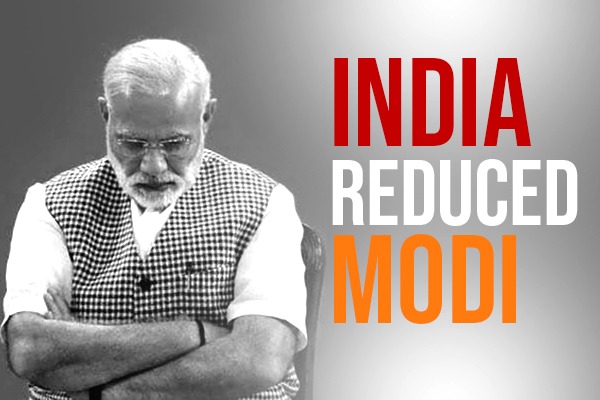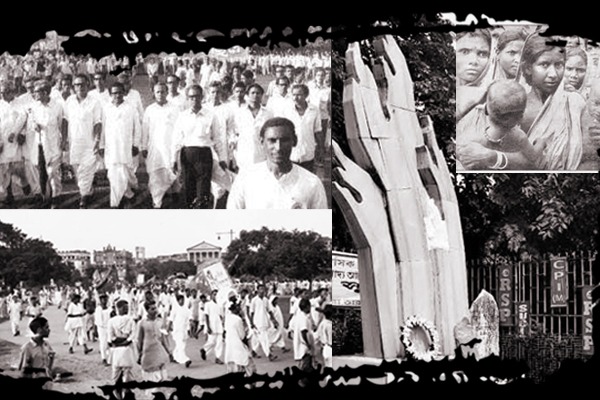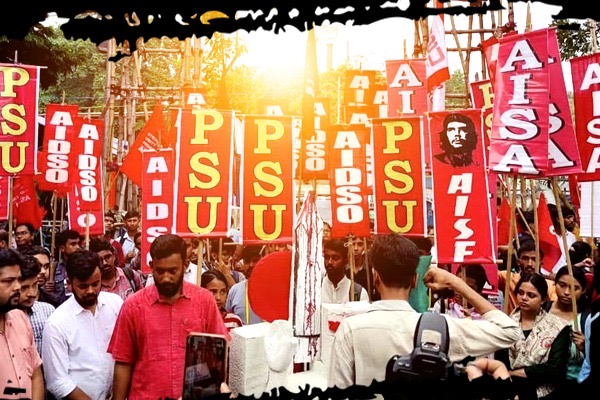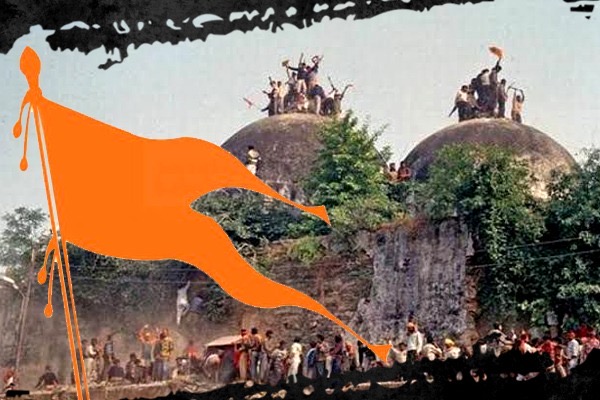In a surprising turn of events, the ruling Bharatiya Janata Party (BJP) has faced a setback in the latest general election. The far-right political party has been in power since 2014, winning comfortable majorities in both the general elections of 2014 and 2019. However, this time around, their ambitious slogan of “Ab ki Bar 400 par” (This time, more than 400 MPs) has failed to materialize, leaving the so-called largest party in the world short of the majority mark.
The National Democratic Alliance (NDA), under the leadership of the BJP, has clinched 291 seats in the recent election, surpassing the crucial mark of 272. In 2014, the BJP alone had won a solid majority with 282 seats, while they increased the tally to 303 in 2019. However, this time around, the BJP managed to secure only 240 seats, marking a decrease of 63 seats compared to the last general election. So, government formation now depends on the alliance partners who have the power to either back or oppose the BJP.
This election holds significant importance, as it could have determined the destiny of the Indian democracy. The BJP’s parent body, Rashtriya Swayamsevak Sangh (RSS), a neo-fascist organization with a mission to dismantle the secular and pluralistic fabric of the nation, has always advocated for India as a Hindu nation. The Sangh Parivar (RSS family organizations) has successfully propagated falsehoods about Indian minorities and promoted anti-Muslim rhetoric to consolidate the Hindu vote bank, which has contributed to the BJP’s electoral victories since 2014.
Furthermore, the BJP has been accused of undermining public institutions which are instead meant to uphold the principles of democracy. Agencies such as the Election Commission, Enforcement Directorate, Central Bureau of Investigation, and National Investigation Agency have allegedly been misused to discredit opposition parties and harass them. This erosion of democratic values has raised concerns among the Indian populace about the state and the fate of their nation’s democratic setup.
The BJP leaders have repeatedly stated and hinted at during their election campaign that with 400 MPs in power, it would be easier to amend the Indian Constitution. This provocation stirred up fierce opposition, as changing the constitution is seen as going against the interests of marginalized communities and minorities, reinforcing the anti-reservation stance that has long been one of BJP’s prominent propositions.
The rallying cry of “Save Constitution, Save India” was initially raised by Communist and progressive parties, and it soon became the central theme of the united opposition’s agenda. The 2024 battle was seen as a final stand to protect democracy from fascist forces, a sentiment shared not only by the opposition parties but also by the general public.
Issues such as unemployment, inflation, social welfare, labor laws, and the privatization of healthcare and education, harassment of opposition parties and individuals, were seen as key factors shaping the election outcome. The formation of the Indian National Democratic Inclusive Alliance (INDIA) provided a broad platform for the opposition parties to address these concerns.
With 234 MPs, the INDIA bloc now stands as a formidable force against the BJP. The role of the Communist Parties in the formation of the INDIA bloc was crucial, as they recognized the need for a united front to combat fascist tendencies. By minimizing seat contests to prevent vote division within the opposition, the left parties made significant sacrifices to ensure a strong opposition against the ruling party. Left parties including the three communist parties have secured victory in a total of 9 seats this time.
However, the battle to safeguard democracy is ongoing. The role of opposition parties and citizens in monitoring the electoral process and holding the government accountable is crucial. It is essential to prevent electoral malpractices to ensure that the elected government truly represents the interests of the people. The INDIA bloc, with its formidable strength in Parliament, will play a vital role in this endeavor.
At the time of writing this article, there are reports suggesting that four Members of Parliament from Maharashtra, who belong to the Shiv Sena (Eknath Shinde) party, a partner of the Bharatiya Janata Party (BJP), may join the hand of Udbhav Thakre of INDIA bloc. These kind of developments might make it challenging for the BJP and Prime Minister Narendra Modi to secure a third term in office.








